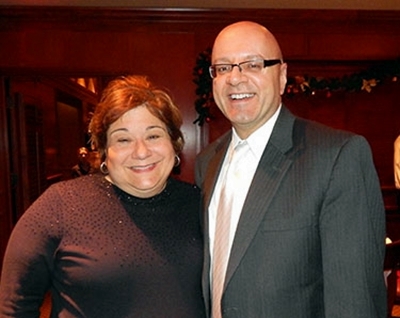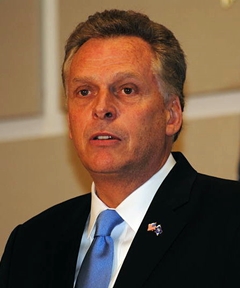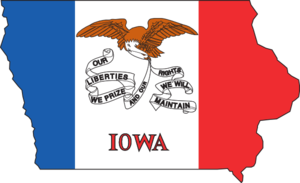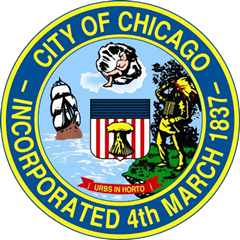January 7, 2014 •
Tuesday Lobbying and Campaign Finance News Update
Lobbying “Bottom Line” in The Hill. “Snapchat hires lobbyists for the first time” by Kate Tummarello in The Hill. Washington: “Bill would make it easier to track lobbyist giving” by Ralph Schwartz in the Bellingham Herald. Campaign Finance “Caution – […]
 Lobbying
Lobbying
“Bottom Line” in The Hill.
“Snapchat hires lobbyists for the first time” by Kate Tummarello in The Hill.
Washington: “Bill would make it easier to track lobbyist giving” by Ralph Schwartz in the Bellingham Herald.
Campaign Finance
“Caution – Creative Campaign Bookkeeping in Progress” by Kent Cooper in Roll Call’s Political MoneyLine.
Arizona: “Lawmaker wants voters to repeal public campaign funding” by Howard Fischer in the Arizona Daily Star.
Colorado: “Colorado GOP looks to establish expenditure committee free of limits” by Kurtis Lee in the Denver Post.
Minnesota: “Minn. campaign board taking new look at Senate DFL” by The Associated Press in the Sun Herald.
Ethics
California: “California campaign ethics watchdog marks record year” by Christopher Cadelago in the Sacramento Bee.
Hawaii: “A New Era in Ethics in Honolulu? Time Will Tell” by Nick Grube in the Honolulu Civil Beat.
Missouri: “Rowden bill would limit lobbyist gifts to legislators” by Rudi Keller in the Columbia Daily Tribune.
Virginia: “Va. House members broker ethics reform deal” by Julian Walker in The Virginian-Pilot.
Virginia: “Virginia lawmakers detail ethics reform plans” by Rachel Weiner in The Washington Post.
Elections
Arkansas: “Early voting to begin in special election for state Senate seat” in the Arkansas News Bureau.
State Legislatures
California: “California 2014 legislative session kicks off with new faces, old scandal” by Jeremy B. White and Laurel Rosenhall in the Sacramento Bee.
January 6, 2014 •
Our January Photo Scrapbook
Enjoy these fun photos from recent events!
Enjoy these fun photos from recent events!

to enjoy a new lunch choice for a day. Businesses nearby and University of Akron students enjoyed this great surprise in downtown Akron.






Seated left to right are Zack Koozer, Cristina Dickos, and Alessandra Dickos.
January 6, 2014 •
Legislation We Are Tracking
At any given time, more than 1,000 legislative bills, which can affect how you do business as a government affairs professional, are being discussed in federal, state, and local jurisdictions. These bills are summarized in State and Federal Communications’ digital […]
At any given time, more than 1,000 legislative bills, which can affect how you do business as a government affairs professional, are being discussed in federal, state, and local jurisdictions. These bills are summarized in State and Federal Communications’ digital encyclopedias for lobbying laws, political contributions, and procurement lobbying and can be found in the client portion of our website.
Summaries of major bills are also included in monthly email updates sent to all clients. The chart below shows the number of bills we are tracking in regard to lobbying laws, political contributions, and procurement lobbying.

January 6, 2014 •
Virginia Gubernatorial Inauguration January 11
The inauguration for Virginia Governor-Elect Terry McAuliffe will be held Saturday, January 11, 2014 in Capitol Square in Richmond Virginia. The day will begin with a prayer breakfast, followed by the inauguration ceremony, parade, executive mansion open house, and the […]
 The inauguration for Virginia Governor-Elect Terry McAuliffe will be held Saturday, January 11, 2014 in Capitol Square in Richmond Virginia. The day will begin with a prayer breakfast, followed by the inauguration ceremony, parade, executive mansion open house, and the Richmond Inaugural Ball. More information is available at http://www.inauguration2014.com/.
The inauguration for Virginia Governor-Elect Terry McAuliffe will be held Saturday, January 11, 2014 in Capitol Square in Richmond Virginia. The day will begin with a prayer breakfast, followed by the inauguration ceremony, parade, executive mansion open house, and the Richmond Inaugural Ball. More information is available at http://www.inauguration2014.com/.
Virginia does not place any limits on the source or amount of political contributions or gifts, including to inaugural committees. Contributions to inaugural committees are not required to be reported on lobbying reports.
Photo of Virginia Governor-Elect Terry McAuliffe courtesy of Edward Kimmel on Wikimedia Commons.
The Iowa Ethics and Campaign Finance Disclosure Board has proposed a requirement for all campaign finance reports to be filed electronically. Currently, the only reports required to be filed electronically are those of legislative and statewide campaigns. In order for […]
 The Iowa Ethics and Campaign Finance Disclosure Board has proposed a requirement for all campaign finance reports to be filed electronically. Currently, the only reports required to be filed electronically are those of legislative and statewide campaigns.
The Iowa Ethics and Campaign Finance Disclosure Board has proposed a requirement for all campaign finance reports to be filed electronically. Currently, the only reports required to be filed electronically are those of legislative and statewide campaigns.
In order for the proposal to become law, it must be approved by the Iowa Legislature. An amendment to the bill allowing waiver by the state ethics board of the e-filing requirement for extenuating circumstances is likely to be considered by the House State Government Committee.
January 6, 2014 •
Monday News Roundup
Lobbying “Lobbyists cash in on do-nothing Congress” by Anna Palmer and Byron Tau in Politico. “9 websites you use regularly that are lobbying Congress” by Amber Phillips in the San Jose Mercury News. “Yelp Inc. Registers For Lobbying and Forms […]
 Lobbying
Lobbying
“Lobbyists cash in on do-nothing Congress” by Anna Palmer and Byron Tau in Politico.
“9 websites you use regularly that are lobbying Congress” by Amber Phillips in the San Jose Mercury News.
“Yelp Inc. Registers For Lobbying and Forms PAC” by Kent Cooper in Roll Call’s Political MoneyLine.
Idaho: “Business lobbyists ready legislative wish lists” by Zach Kyle in the Idaho Statesman.
Washington: “Lobbyist freebies on legislative agenda” by Brad Shannon in The Olympian.
Campaign Finance
“Congressman Accepts Bitcoins While FEC Doesnʹt” by Kent Cooper in Roll Call’s Political MoneyLine.
“New Super PAC Registers With Bitcoin Receiving Addresses” by Kent Cooper in Roll Call’s Political MoneyLine.
Arkansas: “Ethics chief says Darr skipped campaign finance training” by John Lyon in KATV News.
Ethics
Missouri: “Missouri’s no-limit legislature stokes debate over ethics reform” by Jason Hancock in the Kansas City Star.
North Carolina: “Ethics Commission appointments made” by Craig Jarvis in the News & Observer.
Wyoming: “Conservative Wyoming group battles Federal Election Commission over election law” by Kyle Roerink in the Casper Star-Tribune.
Congress
“3 Reasons Congressʹ Year Might Start Unexpectedly Strong” by David Hawkings in Roll Call.
In the State Legislatures
“Nearly 2,400 state lawmakers return to work this week” by Niraj Cokshi in The Washington Post.
“Interactive: State of the States 2014” by Melissa Maynard in Governing.
“Governors, Lawmakers Return to Capitols With an Eye on November” by Daniel C. Vock in Governing.
Indiana: “State lawmakers face packed agenda” by Dan Carden in Northwest Indiana Times.
Iowa: “Iowa Legislature’s 2014 session to be shaped by epic political year” by Jason Noble and William Petroski in the Des Moines Register.
Kentucky: “Kentucky legislative session comes with political, fiscal shackles” by Tom Loftus in the Courier Journal.
Maryland: “Md. legislative session overshadowed by election year politics” by John Wagner in The Washington Post.
Mississippi: “What do lawmakers see as top issues for 2014 session?” by Ed Kemp in the Hattiesburg American.
Mississipi: “Analysis: US Senate race will impact Miss. Session” by Emily Wagster Pettus (Associated Press) in the Hattiesburg American.
Missouri: “Mid-Missouri legislators preparing for new session” by Bob Watson in the News Tribune.
North Carolina: “Lawmakers ponder how to fill midterm N.C., U.S. legislative openings” by Gary D. Robertson in the Charlotte Observer.
Rhode Island: “R.I. General Assembly: A look ahead at the key issues of 2014” by Katherine Gregg, Philip Marcelo, and Randal Edgar in the Providence Journal.
South Carolina: “SC politicsʹ welcome back starts this week” by Andrew Shain in The State.
Government Tech and Social Media
Rhode Island: “Political Scene: High tech comes to R.I. General Assembly” by Philip Marcelo, Katherine Gregg and Randal Edgar in the Providence Journal.
Washington: “Access Washington Website Dealing With Outages” in Government Technology.
January 3, 2014 •
Proposed Changes in Canadian Lobbying Laws
If you’re planning to lobby north of the border, there are a number of changes on the horizon you should be aware of. This fall saw quite a bit of activity for Canadian lobbying legislation, with two provinces introducing laws […]
 If you’re planning to lobby north of the border, there are a number of changes on the horizon you should be aware of. This fall saw quite a bit of activity for Canadian lobbying legislation, with two provinces introducing laws to create a lobbyist registration framework and one making substantial changes to its existing law.
If you’re planning to lobby north of the border, there are a number of changes on the horizon you should be aware of. This fall saw quite a bit of activity for Canadian lobbying legislation, with two provinces introducing laws to create a lobbyist registration framework and one making substantial changes to its existing law.
Saskatchewan’s Lobbyist Act would create a registrar of lobbyists, provide requirements for filing returns, which is the Canadian term for the filing for both registrations and reports, and establish definitions and penalties. The act also provides for online filing of returns. The legislation is based on the recommendations of the Standing Committee on Intergovernmental Affairs and Justice issued in 2012.
Similarly, New Brunswick’s Lobbyists Registration Act establishes a basic framework for filing returns and penalties for violations. Prior attempts at creating a lobbyist registry failed in both 2007 and 2011. Saskatchewan and New Brunswick are two of the last three Canadian provinces without lobbying laws; the three Canadian territories also do not have lobbying laws. Both governments cited a desire for providing more transparency for their citizens as the impetus for the legislation.
Ontario introduced an Act to Amend the Lobbyists Registration Act, giving a new definition for grassroots lobbying, giving more specificity on what constitutes an undertaking to lobby, requiring in-house lobbyists to file monthly reports if the lobbying is directed at a high level public office holder, and adding a requirement to report campaign contributions made under the Election Finances Act. Additional changes include revolving door restrictions and changes to penalties. The bill is currently in the Standing Committee on Regulations and Private Bills.
January 3, 2014 •
See Us in Person!
Here is our January – March calendar. If you are attending any of the coming events, please stop by and say hello! January 2-5 Women In Government’s – 20th Annual State Director’s Conference, Phoenix, Arizona January 12-17 Public Affairs Institute, […]
 Here is our January – March calendar. If you are attending any of the coming events, please stop by and say hello!
Here is our January – March calendar. If you are attending any of the coming events, please stop by and say hello!
January 2-5 Women In Government’s – 20th Annual State Director’s Conference, Phoenix, Arizona
January 12-17 Public Affairs Institute, Laguna Beach, California
January 22-24 The United States Conference of Mayors’ 82nd Winter Meeting, Washington, D.C.
January 30 – February 1 NCSL Executive Committee Meeting & NCSL Foundation Board Meeting, Austin, Texas
February 3-6 Public Affairs Council National Grassroots Conference, Miami Beach, Florida
March 3-6 Public Affairs Council National PAC Conference, Miami Beach, Florida
March 16-19 NASPO Marketing to State Governments, San Diego, California
January 3, 2014 •
Ask the Experts – Disclosure of Corporate Political Contributions
Q. When must direct corporate political contributions be disclosed? A. At least 15 states require some sort of corporate contribution disclosure, whether it be on a campaign finance statement or lobbyist/employer disclosure report. Campaign finance reports typically require an annual […]
 Q. When must direct corporate political contributions be disclosed?
Q. When must direct corporate political contributions be disclosed?
A. At least 15 states require some sort of corporate contribution disclosure, whether it be on a campaign finance statement or lobbyist/employer disclosure report.
Campaign finance reports typically require an annual aggregate threshold be exceeded before a report is triggered. For example, in Utah, direct corporate contributions must exceed $750 in the aggregate per calendar year before a report is required. In Georgia, the threshold is $25,000. In Nebraska, a corporation making more than $250 in direct corporate contributions must file a report within 10 days after the end of the calendar month in which the contribution is made.
Conversely, lobbying reports typically start at “dollar one.” In New Mexico, lobbyists are required to report all political contributions made by the employer, regardless of amount. The same holds true in South Carolina and New Hampshire.
And then there’s California—a hybrid of both campaign finance and lobbying disclosure. Direct corporate contributions must exceed $10,000 in the aggregate per calendar year before a campaign finance report is due. However, until this threshold is exceeded, corporate political contributions must be disclosed on the lobbyist employer’s quarterly report.
As always, the best practice is to track all corporate political contributions in the event disclosure is required. Likewise, you need to familiarize yourself with the reporting requirements in those jurisdictions where your company is making contributions.
You can directly submit questions for this feature, and we will select those most appropriate and answer them here. Send your questions to: marketing@stateandfed.com.
(We are always available to answer questions from clients that are specific to your needs, and we encourage you to continue to call or e-mail us with questions about your particular company or organization. As always, we will confidentially and directly provide answers or information you need.) Our replies to your questions are not legal advice. Instead, these replies represent our analysis of laws, rules, and regulations.
January 3, 2014 •
Florida – 2014 PAC Conferences
I really can’t stay – Baby it’s cold outside I’ve got to go away – Baby it’s cold outside This evening has been – Been hoping that you’d drop in So very nice – I’ll hold your hands, they’re just […]
 I really can’t stay – Baby it’s cold outside
I really can’t stay – Baby it’s cold outside
I’ve got to go away – Baby it’s cold outside
This evening has been – Been hoping that you’d drop in
So very nice – I’ll hold your hands, they’re just like ice
We all love the holidays with the lights, songs, and snow…But, it sure is cold out there. So this is a perfect time to plan your professional development for 2014, especially the Public Affairs Conference Grassroots and Political Action Committee conferences.
The Grassroots conference is in Miami Beach, February 3-6, and is full of programs. This year there are four new tracks to help with your needs—Core, Creative Solutions, Communications, and Challenges. The list of sessions includes:
-
How Do I Raise My Profile with Michael Jacobson, U.S. Travel Association;
-
How Capitol Hill is Changing the Way the Way It Listens to Constituents with Faiz Shakir, Office of U.S. Senate Majority Leader, Harry Reid;
-
Can Siri Advocate with Michael Panetta, Beekeeper Group;
-
The Fly-In: Back with a Vengeance with Caitlin Donohue, National Restaurant Association; and
-
My personal favorite, Ethics, Gift Rules and Legal Updates for an Election Year with Ken Gross, Skadden Arps.
The PAC conference is in South Beach, March 3-6, and also has four learning tracks—PAC Management, Communications Strategies, Fundraising Tools, and PAC Plus. The list of sessions includes:
-
Looking at 2014 and Beyond with Sara Fagen, DDC Advocacy;
-
Managing Political Contributions at the State Level with Dominick Ciaraldo, Comcast;
-
How Data is Transforming Elections and Politics with Sasha Issenberg, author of The Victory Lab; and
-
Again, my favorites, Legal Guidance for Corporate PACs with Ken Gross, Skadden Arps and Legal Guidance for Association PACS with Michael Toner, Wiley Rein LLP.
I know it can be difficult to convince supervisors that conferences in Florida are a good investment. But, these really are a good investment of funds and time. Check out www.pac.org for more information.
On behalf of the staff at State and Federal Communications, we wish you a very Happy New Year. We look forward to continuing to be your trusted advisers in 2014.
Thank you,
Elizabeth Z. Bartz
President and CEO
@elizabethbartz
January 3, 2014 •
News You Can Use Digest – January 3, 2014
National: Social Conservatives Make Big Money Plans Politico – Kenneth Vogel | Published: 1/2/2014 The religious right’s wealthiest backers and top operatives plan to elevate the place of social issues like abortion and gay marriage in conservative politics. […]

National:
Social Conservatives Make Big Money Plans
Politico – Kenneth Vogel | Published: 1/2/2014
The religious right’s wealthiest backers and top operatives plan to elevate the place of social issues like abortion and gay marriage in conservative politics. They have been largely relegated to the sidelines as the business wing of the Republican Party establishment wages a bitter and expensive struggle against the tea party for the soul of the GOP.
Federal:
Lines Blur When Lobbyists Invest in Industries They Represent
Wall Street Journal – Brody Mullins, James Grimaldi, and Rebecca Ballhaus | Published: 12/26/2013
Through continual contact with public officials, lobbyists often glean intimate knowledge of pending policy changes and political activities that affect the fortunes of companies or industries they represent. Many also hold investments that overlap with their responsibilities, according to a review of public records. It showed about one in five lobbyists whose holdings could be identified had invested in their clients or companies in the industries they are concerned with.
From the States and Municipalities:
Arkansas – Ark. Lt. Gov. Rebuffs Calls to Resign amid Scandal
San Francisco Chronicle – Chuck Bartels (Associated Press) | Published: 12/31/2013
Arkansas Lt. Gov. Mark Darr, who said he would settle with his state Ethics Commission amid findings that he repeatedly broke campaign finance laws, defied mounting calls for his resignation, including one from Gov. Mike Beebe, and said he intended to remain in office. Darr has agreed to pay $11,000 in fines to settle the complaints.
California – Ex-Employee Accuses Lobbying Firm of Directing Illegal Contributions
Los Angeles Times – Patrick McGreevy and Paige St. John | Published: 12/26/2013
A lawsuit filed by former Sloat Higgins Jensen & Associates employee Rhonda Smira alleges owner Kevin Sloat and his firm directed illegal campaign contributions and unreported gifts to dozens of California lawmakers. Smira said she was ordered not to provide receipts for the gifts; that way, recipients could avoid disclosing the transactions on reports required by the state. The lawsuit says Sloat told her: “If I don’t report and there is no written record, and they don’t report it, then it didn’t happen.”
Georgia – Georgia Officials Take Lobbyist Gifts before New Rules
Augusta Chronicle – Ray Henry (Associated Press) | Published: 12/30/2013
Lobbyists splurged on gifts to Georgia lawmakers before restrictions took effect on January 1. Gov. Nathan Deal signed the new rules on May 6. While the state’s political leaders supported an end to unlimited lobbyist spending, the old system remained legal until New Year’s Day. Several politicians accepted gifts during this delay that would be illegal, or at least questionable, once the new restrictions start. Some questions about the law remain unresolved until the ethics commission creates rules interpreting the new law, a process that could take months.
Massachusetts – Teachers Union Revealed as Funder behind Pro-Walsh PAC
Boston Globe – Wesley Lowery | Published: 12/28/2013
The American Federation of Teachers was behind the last-minute, $480,000 advertising push on behalf of Boston Mayor-elect Martin Walsh, even though it was billed as the work of a start-up PAC dubbed One Boston. No information was disclosed at the time about One Boston’s ideological loyalties or donors, angering watchdog groups who had already been critical of the unprecedented amount of outside money that was flowing into the race, which ultimately became the state’s most expensive municipal contest ever.
Michigan – Gov. Snyder Signs Law to Double Michigan Campaign Contribution Limits, Codify ‘Issue Ad’ Rules
MLive.com – Jonathan Oosting | Published: 12/27/2013
Michigan Gov. Rick Snyder signed a bill doubling the state’s campaign contribution limits. The law includes a provision designed to thwart efforts by Secretary of State Ruth Johnson to reveal who pays for issue ads that have become increasingly influential in campaigns. Snyder said the law also increases transparency by requiring candidates to file additional campaign finance reports with the state during years in which they are not up for election.
Minnesota – Minnesota Political Spending Concentrated in Few Hands
Minneapolis Star Tribune – Rachel Stassen-Berger and Glen Howatt | Published: 12/30/2013
The Minneapolis Star Tribune found just three dozen individuals or entities have contributed more than $27 million to PACs and independent expenditure committees over the past three election cycles. The analysis shows the donations heavily favored Democrats. Minnesota Republicans acknowledged Democrats have benefited from superior organization, a more energized base, and campaign finance rules that make it easier for unions to donate.
Missouri – Missouri Lawmaker Wants Political Consultants to Stay Out of Policymaking
Kansas City Star – Dave Helling | Published: 12/24/2013
Missouri Sen. John Lamping filed an ethics reform bill that would prohibit consultants from working as lobbyists, and lobbyists from working as consultants. Lamping said operatives who help elect candidates should not be able to turn around and work for special-interest clients to influence those lawmakers, as is now routinely the case.
New York – Bratton Gives Revolving Door One More Spin
New York Times – J. David Goodman | Published: 12/23/2013
A “revolving door” between government service and the corporate world has long been a feature of politics, and police officials often pursue second careers after hanging up their uniforms. But few have done so with William Bratton’s scope. His return to New York City for a second tour as police commissioner may create an awkward situation. Bratton sits on the boards of two companies who hope to do business with the city, and is a senior adviser to a third.
North Carolina – New NC Law Increases Donation Limits, Curtails Some Disclosure in 2014
Raleigh News & Observer – John Frank | Published: 12/26/2013
North Carolina joined at least eight others states pushing for increases in campaign contribution limits this year. Starting January 1, state candidates and PACs can take maximum contributions of $5,000 per election. The top donation to judicial candidates will leap to the same level from the current $1,000 cap. The new law also weakens rules about what outside groups, such as nonprofits, issue advocacy organizations, and super PACs, must disclose.
South Carolina – S.C. Ethics Commission Owed $2.5 Million in Fines
Charleston Post & Courier – Seanna Adcox (Associated Press) | Published: 1/1/2014
Candidates, lobbyists, and committees owe nearly $2.5 million in fines to the South Carolina Ethics Commission. Under state law, individuals are fined $100 for filing either campaign disclosure or economic interest forms five days late. Once a notice goes out, fines amass daily, up to $5,000 per form. Collecting can be difficult, especially from unsuccessful candidates.
Texas – Texas Republicans Lose 3 Major Donors in 2013
Houston Chronicle – Chris Tomlinson (Associated Press) | Published: 12/30/2013
The deaths this year of three major Republican campaign donors could signal a generational change for party kingmakers. Harold Simmons, Bob Perry, and Leo Linbeck, Jr. gave to Republican candidates and organizations across the country, but their influence was greatest in Texas, which has no limit on personal campaign contributions.
Virginia – Ethics Reform Seems Uncertain in General Assembly
The Daily Press – Dave Ress | Published: 12/29/2013
After a year that saw Virginia Gov. Bob McDonnell and Attorney General Ken Cuccinelli embarrassed by reports of tens of thousands of dollars’ worth of gifts they accepted from a business executive, ethics is again a talking point in Richmond. Gov.-elect Terry McAuliffe plans to issue an executive order banning gifts of more than $100 to executive branch officials, but there is no consensus on whether the Legislature will enact reforms.
Wisconsin – With Audit on the Horizon, the Elections Board Spends another Year in the Crosshairs
Wisconsin State Journal – Mary Spicuzza | Published: 12/29/2013
The Wisconsin Government Accountability Board (GAB), which is made up of six former judges, and its staff are preparing to celebrate their sixth anniversary. But the board is also awaiting the results of an audit ordered by state lawmakers, many of whom have been vocal critics of the agency. “The GAB is a national model, and it would be a tragedy and a travesty if it were eliminated,” said Daniel Tokaji, a law professor at Ohio State University.
 State and Federal Communications produces a weekly summary of national news, offering more than 80 articles per week focused on ethics, lobbying, and campaign finance.
State and Federal Communications produces a weekly summary of national news, offering more than 80 articles per week focused on ethics, lobbying, and campaign finance.
News You Can Use is a news service provided at no charge only to clients of our online Executive Source Guides, or ALERTS™ consulting clients.
January 2, 2014 •
Chicago Board of Ethics Posts New Informational Brochures
The Chicago Board of Ethics recently posted two new publications on its website, both of which outline ethics restrictions for city officials. The first addresses, among other things, general conflicts of interest, lobbying on behalf of others, financial interests in […]
 The Chicago Board of Ethics recently posted two new publications on its website, both of which outline ethics restrictions for city officials.
The Chicago Board of Ethics recently posted two new publications on its website, both of which outline ethics restrictions for city officials.
The first addresses, among other things, general conflicts of interest, lobbying on behalf of others, financial interests in city contracts, financial disclosure requirements, gifts, revolving door provisions, and penalties for ethics violations.
The second addition is a publication delineating what city employees and officials may or may not do in terms of contracting with the city.
Both documents are intended to provide a basic understanding of ethics rules and are not deemed legal advice.
Governor Rick Snyder signed a bill Friday revising Michigan’s campaign finance law. Under the new law, an individual will be able to donate up to $6,800 to a candidate for statewide office in a single election cycle, up from $3,400. […]
 Governor Rick Snyder signed a bill Friday revising Michigan’s campaign finance law. Under the new law, an individual will be able to donate up to $6,800 to a candidate for statewide office in a single election cycle, up from $3,400. An individual will be able to donate $2,000 for state House and Senate candidates, up from $1,000. Local candidate caps depend on the size of the community.
Governor Rick Snyder signed a bill Friday revising Michigan’s campaign finance law. Under the new law, an individual will be able to donate up to $6,800 to a candidate for statewide office in a single election cycle, up from $3,400. An individual will be able to donate $2,000 for state House and Senate candidates, up from $1,000. Local candidate caps depend on the size of the community.
The new law marks the first increase to state contribution limits since the late 1970s. The new law also requires the sponsors of “issue ads” to include disclaimers on their materials identifying the party responsible for the ad.
January 2, 2014 •
Kentucky Legislative Ethics Commission Offering Lobbyist Workshop
The Legislative Research Commission (LRC) will conduct an optional lobbyist workshop on Wednesday, January 8, 2014. Legislative leaders and LRC employees will provide information about the legislative process, bill tracking, and ethics requirements. The workshop will begin at 9:00 a.m. […]
 The Legislative Research Commission (LRC) will conduct an optional lobbyist workshop on Wednesday, January 8, 2014.
The Legislative Research Commission (LRC) will conduct an optional lobbyist workshop on Wednesday, January 8, 2014.
Legislative leaders and LRC employees will provide information about the legislative process, bill tracking, and ethics requirements.
The workshop will begin at 9:00 a.m. and will be held in Room 149 of the Capitol Annex in Frankfort.
State and Federal Communications, Inc. provides research and consulting services for government relations professionals on lobbying laws, procurement lobbying laws, political contribution laws in the United States and Canada. Learn more by visiting stateandfed.com.


